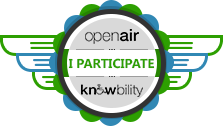A friend who is also a mom told me the other day that she realized that if she didn’t get on top of things Christmas was not going to happen at her house. She said she stayed up late that night and used Amazon Prime and other online shopping to help her become less behind.
Her comment focused for me why December is such a challenging month for me. Because I need to keep up my sleep and cognitive rest in order to be able to manage my persistent symptoms as best as possible, I am not able to use her strategy of staying up late. If I stay up late to do all that I think I am behind on, it only sets me back further. I must take on less in December and simplify as much as I can, in order to take on the increased tasks of preparing for and being present for celebrating Christmas.
My very wise Visual Therapy Doctor taught me a lot about slowing down in December. He did not hold our vision therapy classes in December at all. He said there’s enough stress with the season and to teach his patients to reduce stress, he gave them time by not holding class.
He also advised against taking on anything that could be done in January in order to clear out time to do increased holiday activities like get together with friends and family.
I have followed the strategies he suggested for years and I am grateful to him that he taught me this.
I also pick which events will make me happiest and then choose among those. I have to work very hard not to over do it. Once I have picked what I would like to do, I have to be flexible about whether its good for me to do it and cancel if its not. And I focus on enjoying the things that I am able to do.
Another “strategy” for managing my life that I was taught in my rehab was to write everything down. Doing this is especially important during December. I write everything down in my calendar in order to free up as much room in my brain as possible so that I can use as much of my brain as possible for problem solving the things that come up during the day.
If my brain is too cluttered with things I want to remember, then that clutter impedes making all the decisions that I need to make on an everyday basis — decisions so simple as which key is my door key and what to eat for breakfast or how to get from my house to the grocery store and what to buy. In December, there are so many extra details to remember and kept track of that I find I really have to be as vigilant as possible about getting things down on paper and out of my head. Presents, extra grocery shopping, trying to keep structure when everyday routine changes with the holidays and finding good conversation topics can take up a lot of room in one’s brain if its not written down.
If Thanksgiving is my the Olympics of cognition, than Christmas is Mega-Olympics. It’s beyond what we have a term for.
Tis the season. Enjoy!



Recent Comments